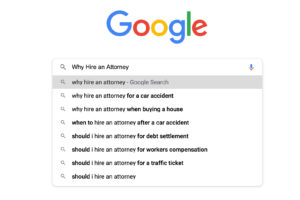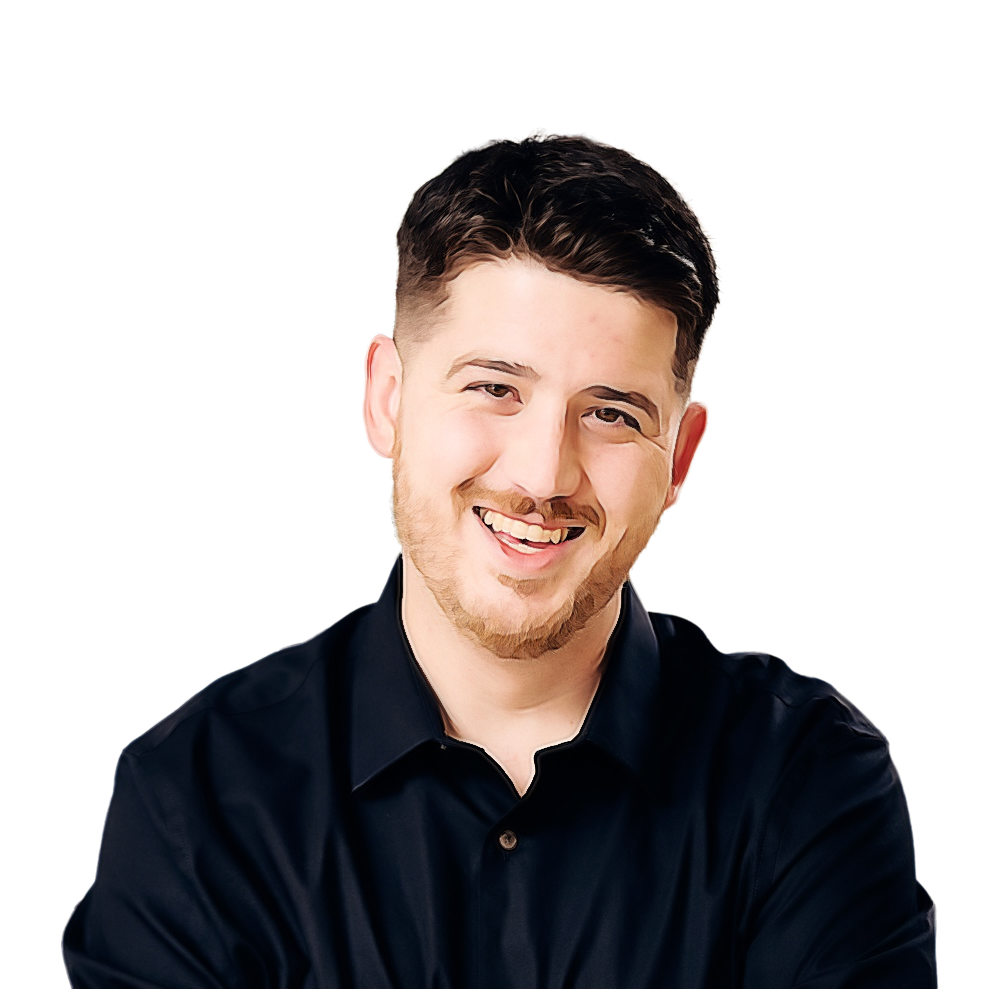What is SEO?
SEO stands for Search Engine Optimization and it’s the practice of increasing both the quality and the quantity of traffic to your website through organic search results instead of paid advertising.
The simple goal is to rank higher on the search engine results page (SERP) so that more people see your website, and ideally visit it. These visitors can then potentially be converted into paying customers.
In order to optimize your website for search engines, you need to consider:
- how a search engines functions
- the algorithms they use to rank websites
- what people search for (keywords)
When you put a focus on SEO, you can potentially get your website to rank higher while also increasing the quality of the traffic to your website.
The goal is to get traffic, yes, but not just any traffic. Ideally, you want people to visit your site who are looking to learn from you and potentially purchase your services.
SEO isn’t magic, and there is no shortcut.
Google and other search engines reward websites that are valuable to their users. This means that the information they provide is accurate and well organized, their content is backed up with sources, and other websites find their information valuable.
Organic Ranking vs Paid Advertising
The term SEO refers to the practice of getting your website to rank higher naturally. This means that search engines want to rank your website because they find it valuable, think it answers the searcher’s questions, or it contains what the searcher wants to buy (or all three).
Paid Advertising (Pay-Per-Click)
There is another way to get your website to show up at the top of the SERP: paid advertising, or pay per click (PPC).
Pay-per-click advertising can refer to any type of advertising online that a person pays for. This includes search ads, display ads, social media ads, google shopping ads, local service ads, and in-video ads.
Paid ads are usually sold by the search engine platform or the social media platform. They allow for a website to pay for a top spot when a user enters certain keywords.
Social media advertising, display ads on popular websites, and video ads on YouTube definitely have their role in online marketing, but they are distinctly different from organic marketing.
The biggest difference between PPC and organic marketing is longevity.
With PPC, traffic stops when the money stops.
Paid advertising generates instant results, can be helpful in giving your site a boost and selling more products and can help you learn more about your audience based on the data you receive back. However, PPC can also eat up a marketing budget if they are not set up correctly, mostly because there is so much competition.
No search engine will tell you “keep your money, there is no way you are going to compete with the other people paying for ads.” Instead, they will take your money and let you get a few customers while those that can afford thousands of dollars a day get all the real traffic. Of course, this depends on your industry and budget, but it’s mostly true across the board.
Organic Ranking
Organic search engine rankings and the use of SEO does not have a direct cost, but it does take time and effort. Overall, this marketing strategy will pay for itself.
You have to learn how search engines work and why a website ranks. Once you understand that, you can implement those concepts on your website, and over time, your website will perform better. But it does take time.
I always compare organic ranking and PPC to exercise. Yes, you can supplements and steroids to get fast results, but once your stop taking them, you will lose anything you gained. If you eat a healthy diet, exercise, and provide your body with the things you need to naturally get more fit, it will not only last longer but it will be more sustainable.
Organic marketing is like a healthy diet: it builds healthy habits and lasts much longer.
Having a site that ranks well on Google organically is important. Most searchers choose the website they are going to visit from the first page, so that is where you want to be.
 Elements of On-Site SEO
Elements of On-Site SEO
There are many different elements of search engine optimization on your website. To use search engine optimization effectively, you want to make sure that you’re using it to its full potential. You can add keywords to your site, but it’s not going to help much if you don’t include the other elements as well.
Target Keywords
 Creating informational and creative content for your blog and website is one of the best ways to boost your SEO. For each blog that you write, choose your keyword and think of a topic that would best fit that keyword that is both interesting and informative. For example, if you’re a law firm your keyword may be “car accident attorneys” and you may write an article about what to do after a car accident or common injuries associated with car accidents.
Creating informational and creative content for your blog and website is one of the best ways to boost your SEO. For each blog that you write, choose your keyword and think of a topic that would best fit that keyword that is both interesting and informative. For example, if you’re a law firm your keyword may be “car accident attorneys” and you may write an article about what to do after a car accident or common injuries associated with car accidents.
While that’s more in-depth, you also want to set up your target keywords for your site. What is your brand, and how are people searching for it? If you’re a law firm, people may search “attorneys near me” or “personal injury attorneys” so you’ll want to collect a pool of these target keywords to make sure that you’re integrating them throughout your website.
Headings
It’s also important to include your target keyword in your headings. You want to avoid keyword stuffing as is counterproductive. Keyword stuffing means dropping your keywords in too many of your headings. Google will scan your blog posts, articles, and pages to determine your rank for specific searches. Headings that include your keyword further prove that your article is about that specific topic. This will increase your ranking for that keyword.
External Links

Internal links help to ensure that potential customers stay on your website longer. And external links are used to show that your website is trustworthy and credible. For example, if you write about traumatic brain injury, you may want to link to an article from WebMD or Mayo Clinic.
It’s important to choose websites that are well-trusted but not competitors of your own brand. You would never want to choose another law firm to cite your sources. Doing this risks losing your audience to the opposing website.
Optimized URLs
It’s not something you think about all the time. But you want to make sure that even your URLs are optimized to help with your SEO. A poor website URL may have a jumble of different letters and numbers. This tells you nothing about what’s on the page. However, a URL that includes your target keyword will improve your on-site SEO.
Why Hire an SEO Agency?
Search engine optimization is complicated, and it can be hard to do it all on your own, especially while running a business. Hiring an SEO agency will ensure that your website is optimized to get the best organic traffic possible. That way, you can spend more time perfecting your craft, working with customers, and making a profit. For more information, contact us online or call us at 407-712-0494.


